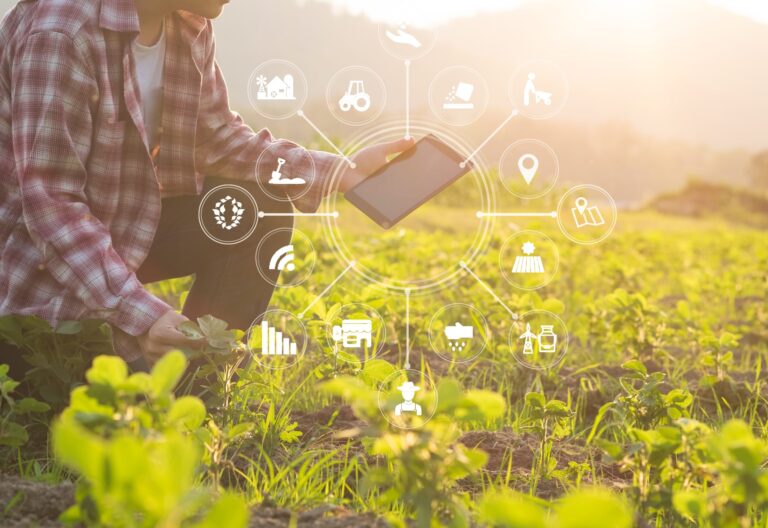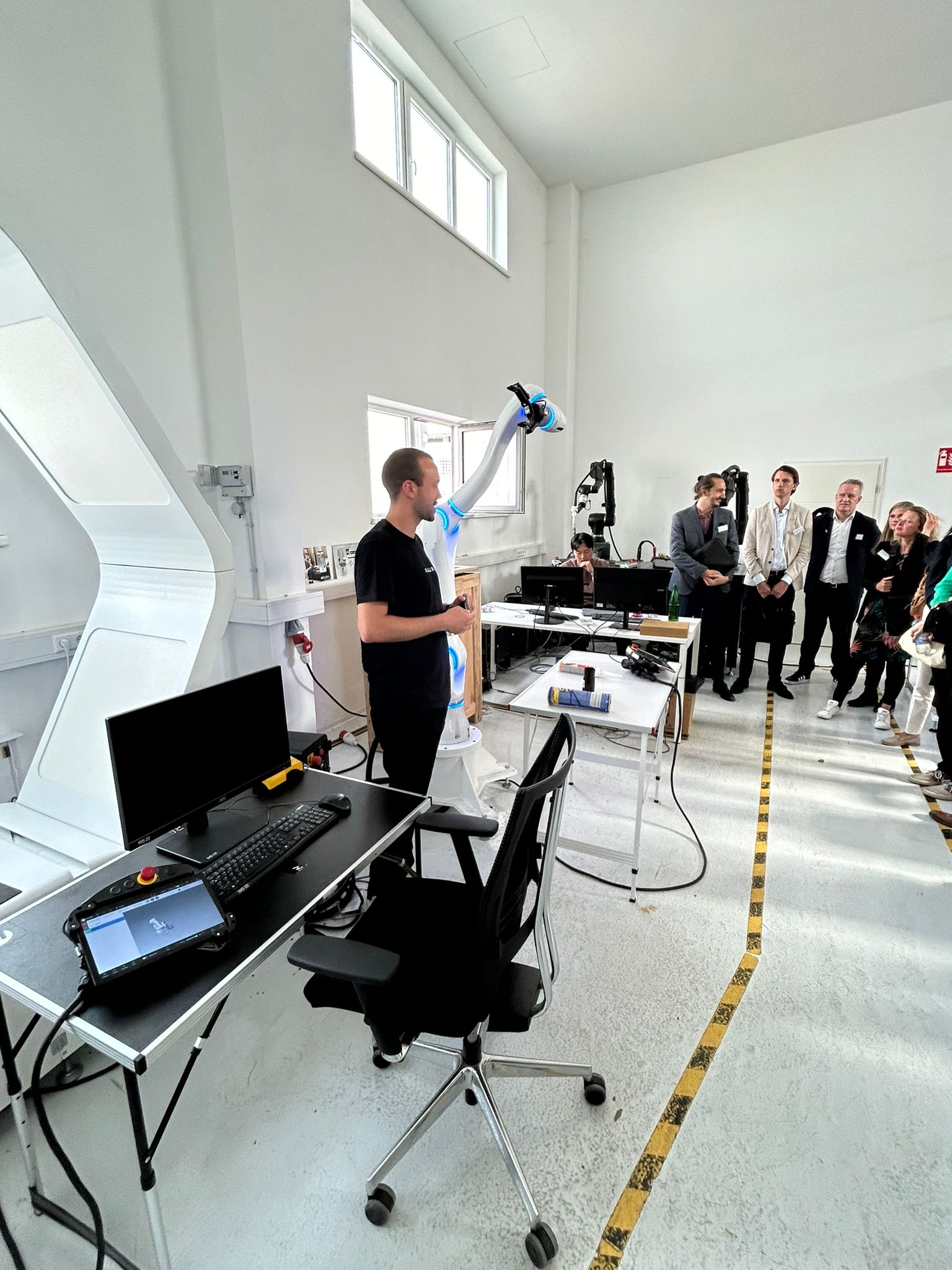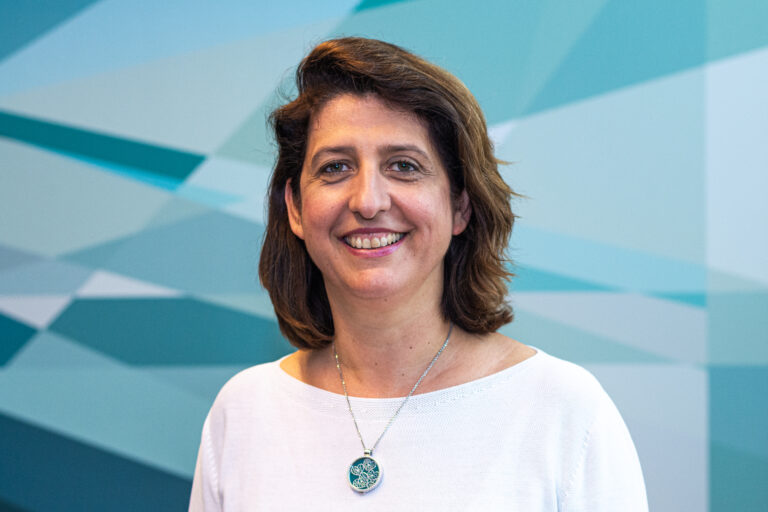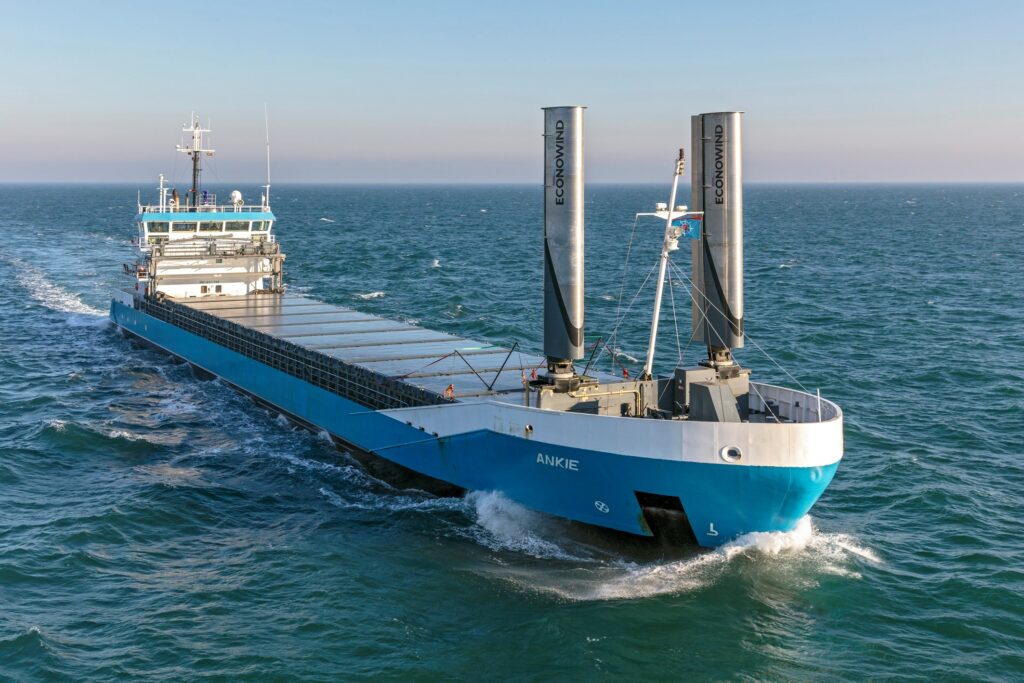However, deploying that technology isn’t progressing smoothly yet. The ELSA Lab for AI for Sustainable Food Systems has set itself the goal of changing that.
What social challenge in AI is being tackled?
The growth of the world’s population means that the demand for food is increasing. Additionally, it is clear that the agri-food sector currently operates in a way that burdens the environment far too heavily. These challenges require not just sustainable agriculture but also sustainable production and consumption patterns. Implementing improvements that lead to healthy eating is also something that needs to be looked at.
A great deal is already happening; improving the food system and making it more sustainable is a priority for the Dutch government and the challenges in that domain have also been explicitly mentioned in the digitalisation agenda of the Ministry of Agriculture, Nature and Food Quality (Nederlandse Digitaliseringsstrategie, 2021). This immediately shows that digitalisation is playing a key role in the transition to more sustainable food systems (SFS). In particular, AI is often mentioned as a possible enabler . That is because AI applications can help achieve a situation where food is produced more efficiently, with lower emissions and less pollution, as well as exhausting the soil less.
What type of solution is offered to the end user?
Although expectations are high, current practice makes it still fairly difficult to use AI applications to achieve the desired goals and thereby help create a sustainable food system. Right in its initial phase, the ELSA Lab for AI for Sustainable Food Systems analysed the causes of that problem. As well as literature research, numerous discussions were held to find out what the various parties are up against when they want to make changes to the food system with the help of AI technology. That quickly revealed that not everyone saw the sustainability goals to be pursued and what is needed to achieve them in exactly the same way.
There also turned out to be concerns about the deployment of AI: is it safe? How will this affect for example the old and familiar ways of producing food, the cooperative arrangements and the relationships and positions of power in the market? Moreover, what shifts might it cause on the labour market? How could it affect animal welfare? All this was summarised in four points that would be focused on. The stakeholders in AI development projects must:
- Reach agreement on the sustainability goals served by a given AI application.
- Prevent disasters and mitigate the risks of AI development.
- Enhance solidarity among the public, guaranteeing equality and justice, as well as being mindful of animal welfare.
- Ensure a balanced apportioning of the costs and benefits of AI among the stakeholders.
These four aspects are precisely what the ELSA Lab focuses on, aiming to help produce a reliable and ethically responsible AI technology that complies with all applicable regulations and that the various groups can therefore confidently use to underpin and perhaps even speed up the transition to a sustainable food system.
What AI methods or technologies are used in the studies?
It is primarily about computer vision, multimedia classification & search, machine learning & Big Data, knowledge engineering and interpretable artificial intelligence.
Is there cooperation with other sectors?
The focus is on agri-food, i.e. the production, processing and consumption of food. A broad consortium of stakeholders guides and advises the lab and provides case studies. They are associated with the following organisations: The Province of Gelderland, Oost NL, FME, ZLTO, FarmResult BV, ICT Campus Veenendaal, Regiodeal FoodValley, Noldus Information Technology BV, VicarVision, ConnectedCare and OnePlanet Research Center. Additionally, the ELSA Lab for AI for Sustainable Food Systems cooperates closely with the other ELSA Labs to learn from each other and raise the quality levels of all the ELSA Labs.
What is the ultimate success this ELSA Lab can achieve?
To assist the development and growth of AI that genuinely helps the transition to a sustainable food system. The ELSA Lab aims to become a well-known hub for governmental authorities, tech companies and researchers (both in the Netherlands and abroad). It should also be a place where various parties can find not only up-to-date knowledge about the ethical, legal and social aspects of AI but also services to help develop innovative AI applications that will ease the transition to a sustainable food system.
Awarded the NL AIC Label
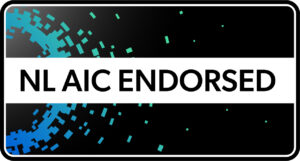
The Netherlands AI Coalition has developed the NL AIC Label to underline its vision for the development and application of AI in the Netherlands. An NL AIC Label formally recognises an activity that is in line with the aims and strategic goals of the NL AIC and/or the quality of that activity. The NL AIC would like to congratulate the ELSA Lab for AI for Sustainable Food Systems.
Awarding ELSA Lab funding
The Netherlands Organisation for Scientific Research (NWO) and the Netherlands AI Coalition launched the NWA call for ‘Human Centric AI for an inclusive society: Towards an ecosystem of trust’. After testing by an independent NWO evaluation committee, five projects were approved at the end of January 2022, including this ELSA Lab. The NL AIC would like to congratulate all the parties involved in obtaining this funding and wishes them every success in the further development of the ELSA Lab.
More information?
If you’re interested in this ELSA Lab, the following people have been involved with its development and will be happy to tell you more:
- Vincent Blok, Wageningen University & Research (WUR)
- Simone van der Burg, Wageningen University & Research (WUR)
If you would like more information about human centric AI and the ELSA concept, please go to this page.
